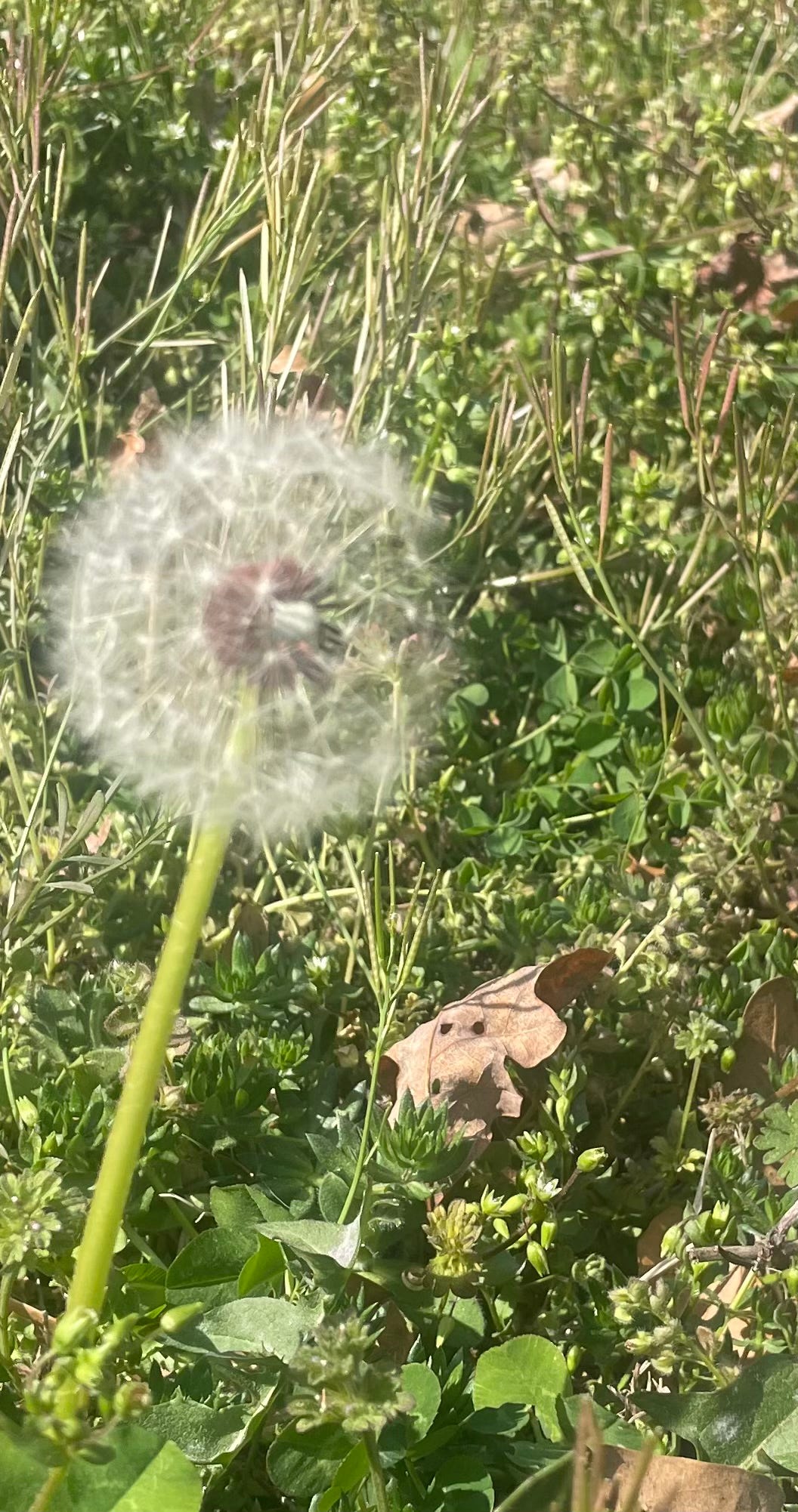Ode on Dandelions
An Adopted Person's Guide to Shedding Shame, Casting Wishes and Celebrating Uncultivation
Dandelion fluff in spring sun, drifting.
When we were children, we blew the fuzz off, made wishes,
stood holding the bald stalks as the soft, white, fluff flew—the stuff of faeries,
of dreams come true.
Our fathers spent their grumbling weekends pulling them out at the roots.
If it had been up to them, they’d have ripped out every last one,
stopped the next and the next from ever arriving, making extinct
the vessels that carried our dearest and most secret dreams.
But what made them do it? Who decided that dandelions should die? And why? For their tenacity? The impossibility of maintaining any semblance of control?
No matter. Some unwritten rule
prompted these men to spend hours of their precious weekends on
pristine lawns, cultivated beds: the marks of respectability,
while we, bastards in the back garden,
growing without being intentionally planted,
searched for the secret trove of golden heads behind the greenhouse, next to the compost pile.
We waited for their white bloom, closed our eyes and blew, watched
as they carried away
our only wish.
We knew what it was to have been ripped out at the root,
to have been the thing that planted itself where it was not wanted,
to have to grow in secret soil.
And as the sun caught the white feathers of fluff, we wished
we could rise and rise with them,
drift on the breeze,
settle to soft soil
and bloom into something beautiful,
instead of being hunched there with the weeds
where we thought we belonged.
Decades later, plucking one of the dandelions that grows
in the space where some people think there should be a lawn, teaching
our granddaughters how to cast a wish,
we realize that each of us who huddled with the dandelions
had already found her right place,
not with weeds but with all that blooms where it chooses,
there in the one wild space our fathers could not reach.
I wrote this a while back and thought I’d save it for when I saw the first dandelions of the year begin to sprout. Obviously, my own connection to adopted people inspired the writing: the ways in which we are shamed for who we are, plucked out at the roots, so to speak, when we are taken away from our families, our identities changed. And how we still carry our truth within and might learn to honor and value it. But the poem seems timely in more ways than just because dandelions are currently blooming. They are good for digestion, and there is so much to digest right now. They are also symbols of hope, resilience, and transformation.
And as I often do, I felt called to consider what from this lesson that relinquishment and adoption have given me, might offer wisdom or nourishment to others. Of course, we as adopted people and first mothers and fathers are far from the only people carrying shame that doesn’t truly belong to us—that has, instead, been poured onto and into us by the larger culture. There is, after all, absolutely nothing shameful about creating a life. There’s nothing shameful about being born. Nor is there shame in the shape in which we are made—externally and internally. Someone outside us determined that we were weeds, so to speak. We were small or vulnerable or both, and they were powerful, so we believed them. But the Truth is that all of us belong. Adopted people, first parents, immigrants, LGBTQ+, those who have been or are being forced from their land. And though we may have carried our shame or held our tongues or hidden in one way or another for decades, somewhere within us there lies—forgive the triteness—an inner dandelion holding the power to bloom, to inspire, to let the Truth of ourselves be carried on the wind and continue to grow.
If you’ve been spending your time pulling metaphorical weeds you secretly love (or even ones you aren’t really bothered by but think you must get rid of) in order to be acceptable, this is your invitation to stop and follow the path of what calls.
If you’re huddled on the one uncut patch of garden, afraid to be seen, this is your invitation to come on out now. Please. We need you.
This week, as you make your way through the dailiness, see if you can move a tiny bit more slowly, pausing along the way and noticing whether there’s a whiff of ‘why-do-I-even-do-this-anyway’? If there is, follow that feeling. By that, I mean, answer the question. Why do you do it? Does it nourish you? If not, might there be another way?
If you’re that child hiding with the so-called weeds, consider writing yourself a little love note/note of encouragement: if that child were your grandchild, what would you tell them?




